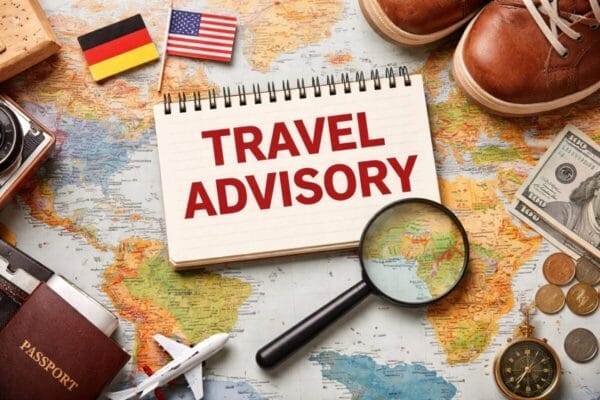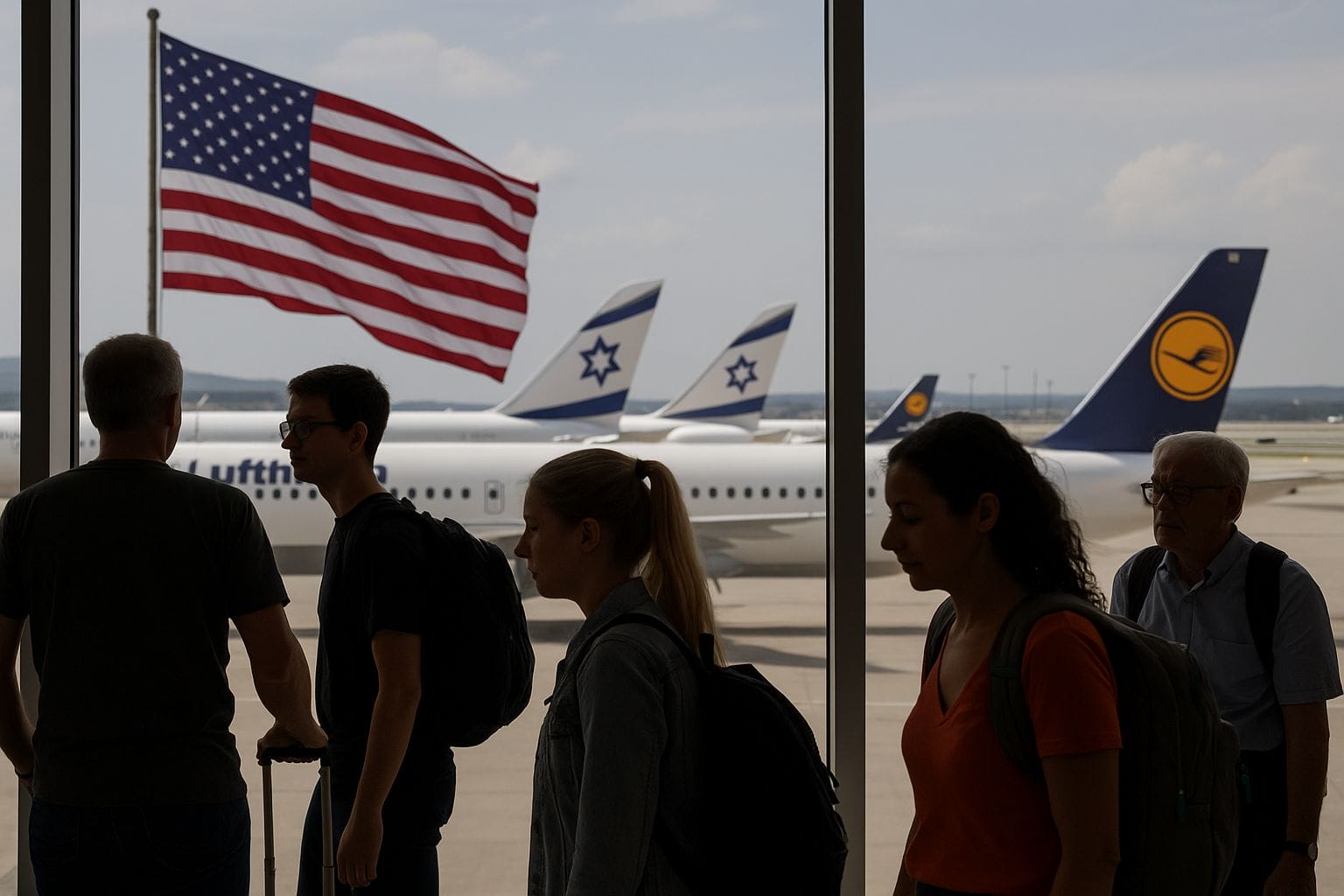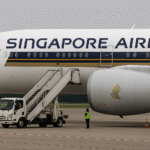The iconic Fourth of July Independence Day holiday, typically a celebration of freedom, sunshine, and family getaways, now faces an unprecedented threat. As the conflict between the United States, Israel, and Iran escalates to dangerous new levels, commercial aviation across the globe has been thrown into disarray. Closed airspace, rerouted international flights, and soaring travel costs have created a perfect storm of uncertainty—and U.S. travelers are scrambling.
With just days to go before one of the busiest travel weekends in America, the question hangs heavy: Will July Fourth travel escape the fallout—or fall victim to it?
Middle East Airspace Becomes Global Travel Bottleneck
Following recent U.S. military strikes on Iranian nuclear facilities and retaliatory action across the region, airspace over Israel, Iran, Iraq, and Syria has been declared unsafe for civil aviation. Both the Federal Aviation Administration (FAA) and the European Union Aviation Safety Agency (EASA) have issued Level 1 warnings, advising all commercial carriers to avoid these zones.
That warning has translated into massive detours for dozens of long-haul flights that typically cross the Middle East corridor—especially routes connecting North America to South Asia, Australia, and Africa. Flights from the U.S. to destinations like India, Thailand, and even South Africa are now detouring thousands of miles north or south, dramatically extending flight times.
Fourth of July Crowds Face Unexpected Delays
July Fourth traditionally sees a spike in domestic and international travel from U.S. airports including JFK, LAX, O’Hare, Atlanta, and Miami. But this year, those bustling terminals are preparing for more than fireworks and family vacations. They’re bracing for turbulence—not just in the skies, but in scheduling, operations, and traveler sentiment.
Delta, United, and American Airlines have each released statements warning travelers of extended delays for select international routes. Meanwhile, connection hubs in Europe—Frankfurt, London Heathrow, and Athens—are dealing with overflow traffic caused by rerouted flights avoiding the Middle East.
Ben Gurion Airport Closed, Travelers Stranded
In Israel, Tel Aviv’s Ben Gurion Airport remains completely closed. Commercial and rescue flights have ceased as missile threats continue across Israeli and Iranian airspace. As a result, thousands of tourists—including nearly 40,000 Americans—are stranded or seeking overland evacuation through Cyprus, Jordan, or Egypt.
El Al, Arkia, and Israir have all suspended outbound services until at least June 30. Meanwhile, incoming flights bound for Tel Aviv are being diverted, some landing in Greece or Turkey before passengers are rerouted by sea or land.
FAA Advisories and U.S. State Department Warnings Expand
The U.S. State Department has issued Level 4: Do Not Travel advisories for Israel, Iran, and Iraq, while advising extreme caution for countries bordering conflict zones—including Jordan, Lebanon, and the Gulf states.
U.S. travelers headed toward Asia, Africa, or even the eastern Mediterranean this holiday are now encouraged to enroll in the Smart Traveler Enrollment Program (STEP), ensuring they receive live alerts, evacuation assistance, and embassy updates.
Airline Chaos and Pricing Surge
The rerouting of major international corridors has led to longer flight times and increased fuel usage. According to global airline tracker OAG, average flight durations from the U.S. to Asia have increased by up to 3 hours in some cases. As expected, airfares are also rising—up 28% on U.S.–India routes and 21% on U.S.–Thailand routes compared to early June.
Domestically, while U.S. airspace remains unaffected by the conflict, the ripple effect from grounded aircraft, rotated crews, and aircraft repositioning has the potential to delay even local routes. Airlines are warning of possible last-minute cancellations or gate changes as aircraft are reassigned.
Tourism Industry on Edge: Beaches or Bust?
From New York to Miami, and from San Diego to the Carolinas, Fourth of July travelers are facing an unfamiliar uncertainty. Some are forging ahead with beach vacations and national park road trips, while others are reevaluating plans entirely.
Hotel operators in U.S. cities expected a revenue boost from incoming tourists. But with international flight delays limiting arrivals from Europe and Asia, many hospitality groups are scaling down their projections. Cities like New York, Orlando, and Las Vegas are especially concerned, as inbound international travel accounts for a major slice of July bookings.
Insurance, Refunds, and Travel Policy Adjustments
Travel insurance providers are also adjusting rapidly. Many are tightening war-risk clauses, while others are offering specialized coverage for routes that include potential conflict regions.
For those with canceled flights to or through Israel, tour operators and airlines are required to offer full refunds or rebooking options under consumer protection laws. However, travelers with plans to nearby—but technically open—countries may face more limited refund rights.
What Should Travelers Do Before the Holiday Weekend?
- Monitor Your Flights Closely: Airline routes are changing daily. Expect sudden adjustments.
- Enroll in STEP (Smart Traveler Enrollment Program): This gives access to U.S. embassy alerts and emergency options.
- Check Travel Insurance Coverage: Especially for geopolitical disruption clauses.
- Book With Flexibility: Choose airlines and hotels offering free cancellation or changes.
- Stay Informed: Use FAA, State Department, and major airline apps for real-time guidance.
The Bottom Line: Travel Joy vs. Travel Jitters
The 2025 Fourth of July travel season now rests at the intersection of celebration and caution. While millions still plan to hit the roads and skies, others are hitting pause—worried about what lies ahead.
This isn’t just a travel inconvenience. It’s a test of how global conflict, diplomacy, and aviation intersect in real time. And for travelers, especially Americans, the message is clear: Stay alert, stay flexible, and be ready to pivot—because the skies over Independence Day are anything but free and clear.
For more travel news like this, keep reading Global Travel Wire

















